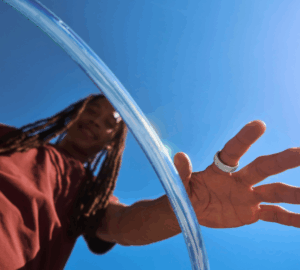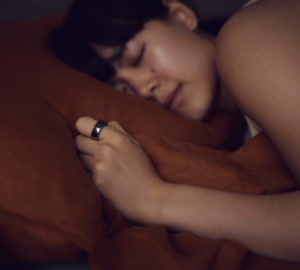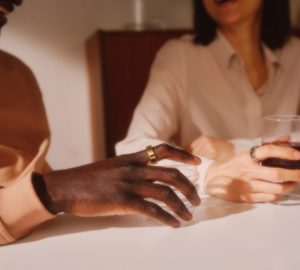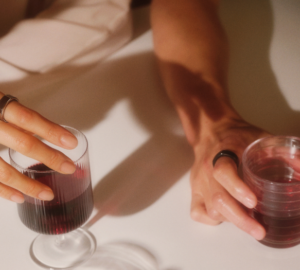Who: Alison K., 36, Chicago, IL
Surprising insight: Oura helped Alison and her healthcare detect a connection between her seizures and her menstrual cycle through Oura’s temperature trend data. This has helped her and her husband better prepare in advance for her seizures.
Alison, a public health professional who’s previously worked in President Obama’s White House, currently works at the Epilepsy Foundation of America. It’s a cause close to home for Alison, who has been living with epilepsy for the past 18 years and has active focal impaired awareness seizures.
In her spare time, Alison loves staying active, working out, spending time with friends, exploring Chicago with her husband, and reading the next book on her list. Below, see how Oura’s insights help Alison better detect and manage her seizures.
 How have you used Oura Ring to help you on your health journey?
How have you used Oura Ring to help you on your health journey?
For the past two years, my seizures have become nocturnal, and I was looking for a way to help me better track them. With Oura’s sleep tracking and heart rate tracking abilities, I’m able to see when I have a seizure, since my heart rate spikes during a seizure. I tag it as a “nightmare,” since there isn’t a “seizure” tag in Oura and wanted to select a tag I wouldn’t confuse with anything else. The data gives me a clear indication of when I have a seizure, and I can easily track that information and bring it to my healthcare team. Tracking my sleep and heart rate helps me know when I should take it easy and let my body rest.
LEARN MORE: Tracking Symptoms and Illnesses With Oura Tags
How does Oura help you better prepare for potential seizures?
My healthcare team and I recently learned there is a connection between my seizures and my menstrual cycle, where the onset of my menstrual cycle triggers seizures. Through Cycle Insights, and by looking at my body temperature trends in the Oura App, I’ve been better able to confirm that connection.
By using this data to know when my menstrual cycle is set to start, my husband and I can be better prepared for my seizures. I look at the Oura App and know the 3-5 days each month when I’m at the highest risk for seizures and plan accordingly.
A few things I do to prepare: make sure I’m getting really good sleep on those days, focus on not missing my medication, and try not to be extra stressed on those days the best I can.
Which Oura Score do you check first in the morning?
I look at my Sleep Score followed by the heart rate data to see if there were any spikes that would indicate a seizure happened. If a seizure occurred, I know I need to take some extra time in the morning to recover and that’s okay. On those days, I also might skip a workout or not worry about hitting my activity goals. Oura helps me take better care of myself and prepare for the day ahead, especially on the days when I have seizures.
LEARN MORE: Oura Introduces Two New Personalized Activity Features
Has Oura helped you cultivate any other healthy habits?
Since I work from home, I love the push notifications from Oura reminding me to stretch my legs since time can go by so quickly when I’m working on a project. Those reminders get me up and moving — for example, I’ll take more walks with my dog throughout the day. I’m a fairly competitive person, and I am always trying to hit my Activity Score! My best friend and I enjoy comparing Oura data and it has encouraged us to support each other as we stay active.
RELATED: Member Gabrielle B. Turns to Oura to Manage Her Reproductive and Mental Health
What’s Your Oura Story?
Everyone’s story is unique, and we’d love to hear yours. Share your story here.











